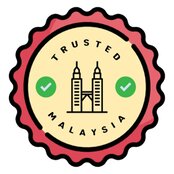Best Toxic Mold Lawyers in Puchong Batu Dua Belas
Share your needs with us, get contacted by law firms.
Free. Takes 2 min.
List of the best lawyers in Puchong Batu Dua Belas, Malaysia
About Toxic Mold Law in Puchong Batu Dua Belas, Malaysia
Toxic mold issues have become increasingly prominent in Malaysia, including in areas like Puchong Batu Dua Belas. Mold is a type of fungus that thrives in damp environments and can cause various health issues, particularly respiratory problems, among other concerns. Legal issues arise when a property has mold infestation that is linked to negligence or failure to maintain the property properly.
Why You May Need a Lawyer
Engaging a lawyer may become necessary in several situations involving toxic mold. These include disputes between tenants and landlords over mold-related damages, health problems resulting from prolonged exposure, or when involved in a property transaction where mold was not disclosed. Legal assistance can ensure that parties are held responsible and that proper compensation is sought for damages or health issues caused by toxic mold.
Local Laws Overview
Local laws pertaining to toxic mold in Puchong Batu Dua Belas are guided by broader Malaysian housing and safety regulations. Landlords are obligated to ensure their properties are safe and habitable, which includes being free from hazardous mold. Failure to address mold infestations can lead to legal disputes. Building codes and environmental health standards may also play a role in legal considerations about mold.
Frequently Asked Questions
What are the health risks associated with toxic mold?
Toxic mold can cause a variety of health issues including allergic reactions, asthma attacks, and other respiratory conditions. Prolonged exposure can lead to more serious health concerns.
Who is responsible for mold removal?
Typically, landlords are responsible for addressing mold issues in rental properties. However, tenants must report mold promptly and not contribute to its growth through negligent behavior.
What should I do if I find mold in my rental property?
Notify your landlord immediately and document the situation with photos. Request an inspection and appropriate remediation. If unresolved, seek legal advice.
Can I withhold rent if the landlord refuses to deal with mold?
Legally, it's not advisable to withhold rent without first seeking legal counsel, as this could lead to eviction. Legal channels should be pursued to resolve disputes over mold issues.
Is toxic mold covered by homeowners insurance?
Coverage for mold varies between insurance policies. Most will cover mold damage if it's due to a covered peril but not for neglected maintenance.
Do I need a professional to remove mold?
For minor mold issues, DIY methods could suffice, but toxic mold or large infestations should be handled by professionals to ensure thorough removal.
Can I sue for health issues caused by toxic mold?
Yes, you can potentially sue if you can demonstrate that your health issues are directly tied to mold exposure and that there's negligence involved.
What legal protections do tenants have against toxic mold exposure?
Tenants are protected under tenancy laws that require landlords to maintain the property in a habitable and safe condition. This includes addressing mold issues.
Do environmental regulations affect mold cases?
Yes, environmental and building regulations impact mold disputes, requiring certain standards of habitability and preventive measures by property owners.
How quickly must a landlord act on a mold complaint?
Landlords are generally expected to respond swiftly to infestations, usually commencing action within a few days of receiving a complaint to mitigate potential health risks and property damage.
Additional Resources
For more information and assistance, resources include the Malaysian National Institute of Occupational Safety and Health (NIOSH) and local health departments. These bodies can provide guidance on health implications and legal obligations related to toxic mold.
Next Steps
If you suspect toxic mold issues, first communicate with your landlord in writing. Document everything with photos and correspondence records. If the issue isn't resolved, consult a legal professional who specializes in property and environmental law. They can offer advice tailored to your specific situation and help determine if legal action is necessary.
Lawzana helps you find the best lawyers and law firms in Puchong Batu Dua Belas through a curated and pre-screened list of qualified legal professionals. Our platform offers rankings and detailed profiles of attorneys and law firms, allowing you to compare based on practice areas, including Toxic Mold, experience, and client feedback.
Each profile includes a description of the firm's areas of practice, client reviews, team members and partners, year of establishment, spoken languages, office locations, contact information, social media presence, and any published articles or resources. Most firms on our platform speak English and are experienced in both local and international legal matters.
Get a quote from top-rated law firms in Puchong Batu Dua Belas, Malaysia — quickly, securely, and without unnecessary hassle.
Disclaimer:
The information provided on this page is for general informational purposes only and does not constitute legal advice. While we strive to ensure the accuracy and relevance of the content, legal information may change over time, and interpretations of the law can vary. You should always consult with a qualified legal professional for advice specific to your situation.
We disclaim all liability for actions taken or not taken based on the content of this page. If you believe any information is incorrect or outdated, please contact us, and we will review and update it where appropriate.








